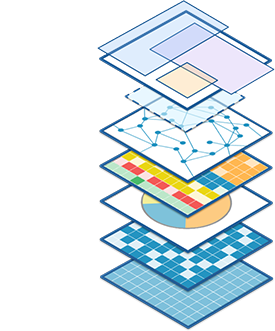 I’m the son, Custodian, and Healthcare Proxy of my 89-year-old mother, Alice. I live in a different state. My mother has diabetes and is depressed. Her care team, besides herself and me, includes medical providers in various health settings, community support agencies, and a full-time caregiver that helps her schedule and get to health-related services.
I’m the son, Custodian, and Healthcare Proxy of my 89-year-old mother, Alice. I live in a different state. My mother has diabetes and is depressed. Her care team, besides herself and me, includes medical providers in various health settings, community support agencies, and a full-time caregiver that helps her schedule and get to health-related services.
My problem is to understand what my mother wants for herself and to track who says they’re doing something for her (including my mother and me), what they’re doing, and when they’re doing it. I want to know what it takes to do it (Can she afford it? Can she get there? Does it agree with her? Who will be with her? etc.). I want to know if the actions have the effects we thought they would. I want to know what her risks are and how we plan to prevent or respond to them. I want to able to keep track of all this and keep it current. I want to share it or have it shared from day-to-day and from setting to setting even if I’m not present.
I’ve used this narrative for some time to ground my work in care planning and communication at transitions. Grounding in real life helps me focus and build collaborations. Otherwise, I’m off in a million directions. Actually, this narrative combines the stories of many, many people include you, dear reader. So, Alice and her son, or you and your dad, or you and your caregiver, or you and your patient need the right information about the right person or group of people at the right time in the right manner for the right viewer. This is Precision as in Precision Medicine. The right view is Prism. Hence, Precision Prism.
Much of my attention lately has been with the Patient Centered Outcomes Research Institute (PCORI), clinical decision support (CDS) researchers, the Patient View Institute and Involution Studios designers. Precision Prism pulls these stakeholders and initiatives together nicely. Precision Prism recognizes that people at the center of care benefit from knowing what works to attain short-term, intermediate and long-term outcomes. Knowing what is likely to work for groups of people can be learned through surveys, clinical trials, and comparative effectiveness research. Ultimately, lay people and health professionals use population health data to better a person’s health – they are an experiment of one. Individuals are the source of what does work. Precision Prism can integrate and inform research and CDS through continuous learning cycles for both individuals and groups of people. You can learn more here about Precision Prism. This website is occasionally updated as we learn and design. Stay tuned.






I will have to spend some time looking at this.
My wife and I are the primary caretakers for my 98-year-old aunt who is aging in place at home in a different state. My perspective is that institutions, systems, and programs are much less reliable and helpful than those individuals (found mostly by chance) who seem to really ‘get it’ and have been doing the job long enough to know from experience what works and what gets in the way.
If Precision Prism can make these jewels more common, easier to find, or even possible to create – YAY.
That’s the concept. We’re working in it.
Where’s the graphic from, Danny?
Also, I like the layers concept (a lot!) but I don’t get the “prism” metaphor. Splain?
The graphic was created by Involution Studios http://www.goinvo.com/. The full graphic can be found here http://precisionprism.org/. Prism refers to the view that people use when looking at and using complex data sets. The right information about the right person or group of people at the right time in the right manner, for the right person. This is Precision, the right view is Prism.
I’m delighted to be a patient member of the Involution Team.
Strikes me as a great start. i saw this immediately after tuning in to Gawande’s TED talk on remaking medicine to operate as pit crews of providers, with core values of humility and teamwork. He would resonate to your mission here.
Thanks Marjorie